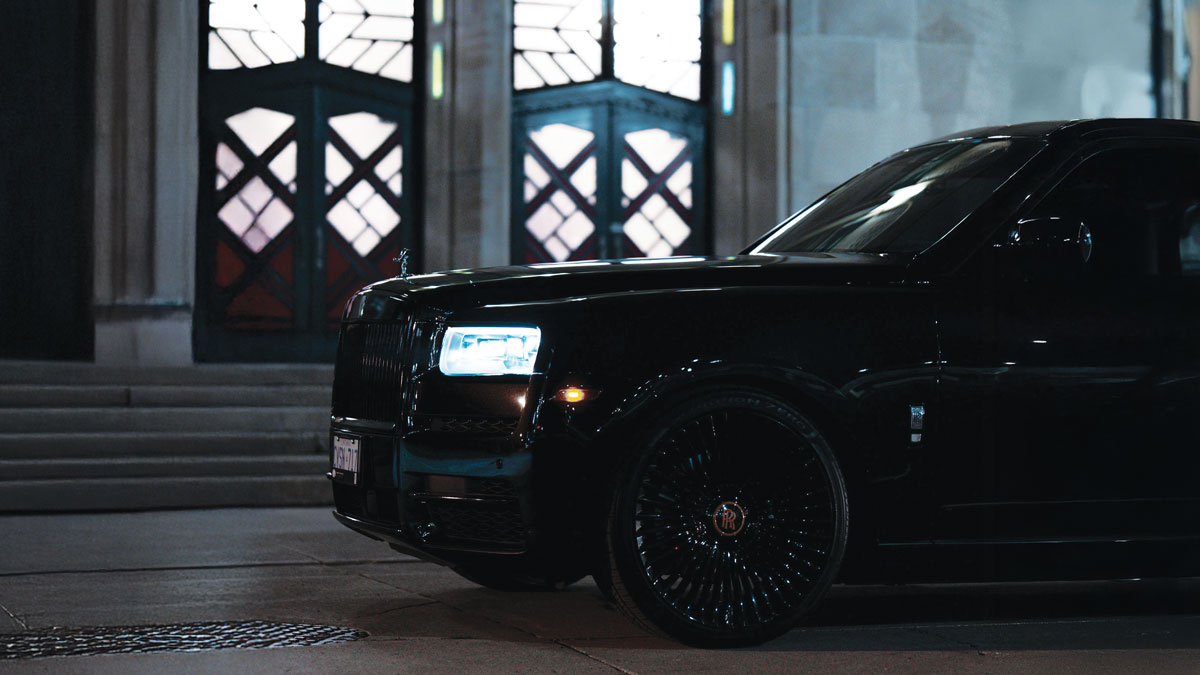Black vehicles have been the choice of colour for heads of state and royalty around the world. From presidential motorcades in Washington, DC, to the gleaming limousines of monarchs in London, black has signified authority, dignity and an aura of solemn power. Why black? Because black announces itself, demands respect and refuses to hide anything.
I have never aspired to owning a black vehicle. It not only failed to rank on the bottom of my list of acceptable colours—it never made the list at all. I don’t need a colour to announce anything about me. And I figured that black would not be the easiest colour to maintain anyway.
So after a long search for a vehicle, I finally found one which ticked all the boxes—except it was black. It wasn’t long into ownership before I admitted defeat to what I now realise is an established truth: a black vehicle defies any attempt to make it truly clean. I had ignored my own instincts about black, as well as the experience of other black car owners.
They warned that black was more than a colour—it was a commitment. One person went so far as to say that black is not a colour—it is a career! No matter how meticulously I detail that vehicle, the paint reveals every speck of dust, faint watermark and hairline scratch that would otherwise be invisible on a lighter colour. Clay bars and ceramic coatings are helpful to a point. Yes, from a distance, black can look impressive. But upon closer inspection, it reveals the truth. It falls short of being spotless. Every. Single. Time.
With white or silver, or for that matter almost any other colour, a car can go weeks without a wash. It looks clean, even when it’s not. But with a black car, nothing is hidden. It’s as if the paint itself is a confessor, unwilling to let anything go unnoticed.
Oddly enough, that ongoing battle with my car has become a spiritual teacher. I’ve come to see that owning a black car is not just a lesson in car care—it’s a parable of the Christian life.
This is the Christian experience. The closer we come to Christ—the Light of the world—the more we become aware of the stains in our hearts. Just as a black car under full sun reveals every blemish, the life exposed to Christ’s righteousness reveals our every flaw.
Like the daily battle against dust on a black car, the Christian life is one of constant washing, refining and surrendering to God. But our hope doesn’t lie in our ability to scrub harder or in applying advanced techniques and methods. It lies in Jesus the true Refiner who does the work of cleansing within, “. . . for He is like a refiner’s fire, and like fuller’s soap” (Malachi 3:2).
Fuller’s soap is no gentle cleanser. It is abrasive, deep-acting, used to purify garments and remove deep stains. So too, Christ’s work in our hearts is not surface-level. He gets into the hidden places, the dark corners, the areas we’d rather not see ourselves.
Ellen White rarely used italics for emphasis in her works. Yet in a single paragraph of Steps to Christ (p47) are two italicised words: how and choose. The first asks a question: How do we surrender? The second provides the answer: Choose to serve Him by giving Him your will. Choice is the ultimate expression of the human will.
And therein lies the secret to a life of victory in Jesus Christ: the interplay of human and divine cooperation. Our part is to choose Him. God’s part is to work in us—to purify and sanctify.
All too often we usurp God’s role by attempting to clean and obey apart from Him. No wonder black refuses to yield to our efforts to achieve the desired lustre, free from imperfections. Black becomes free of defects not through our scrubbing, but by a miraculous, supernatural and transformative act of God.
Ellen White says, “In Christ there is power to overcome every temptation. By His grace we may gain the victory over every evil tendency and desire.”1
“Holiness is not the dress we put on, but the life we live. It is not the outward appearance, but the inward transformation.”2
Every Christian should own a black car at least once—not for the aesthetic, but for the daily parable it teaches.
It trains your eyes to see what others miss. It humbles you. It reminds you that cleanliness is not a one-time event but a constant process. And it points to the reality that only in the presence of Light are the deepest stains revealed and healed.
White cars may look clean longer, but black cars teach you honesty. They teach you to look beneath the surface. And they whisper, day after day, “You need more than a rinse—you need a Redeemer.”
The Bible is full of imagery contrasting sin-stained garments with the purity God offers:
“Though your sins are like scarlet, they shall be as white as snow” (Isaiah 1:18).
“They have washed their robes and made them white in the blood of the Lamb” (Revelation 7:14).
“To her it was granted to be arrayed in fine linen, clean and white: for the fine linen is the righteousness of saints” (Revelation 19:8).
Our “black car” lives—flawed, dusty, streaked—can become radiant by God working in us. His unlimited power then works in us to will and to do according to His good pleasure. We do not clean ourselves. We are cleaned by the One who gave Himself for us. The works He does in us will inevitably compel us to action:
So I keep washing that black car. I keep sighing at the dust and streaks that re-appear an hour later. No, actually milliseconds later. And I thank God that He’s using my car to preach to me each time I lay eyes on it.
I also thank Christ that one day He will replace this car—and this flesh— with a nature that is not bent towards sin. The good news is that we don’t need to wait for that trump to sound before He envelopes us with the white robe of His righteousness. That is there for the taking—right now! I can stand clad in His pure character, not because I scrubbed hard enough, but because I allowed Jesus to wash me thoroughly.
Until then, I press on—dusting, polishing, repenting, trusting. And driving my black car with new eyes.
- Ellen G White, Testimonies for the Church, Vol9, p182.
- Attributed to CH Spurgeon.
Dr Robert Granger writes from Bunbury, WA.






